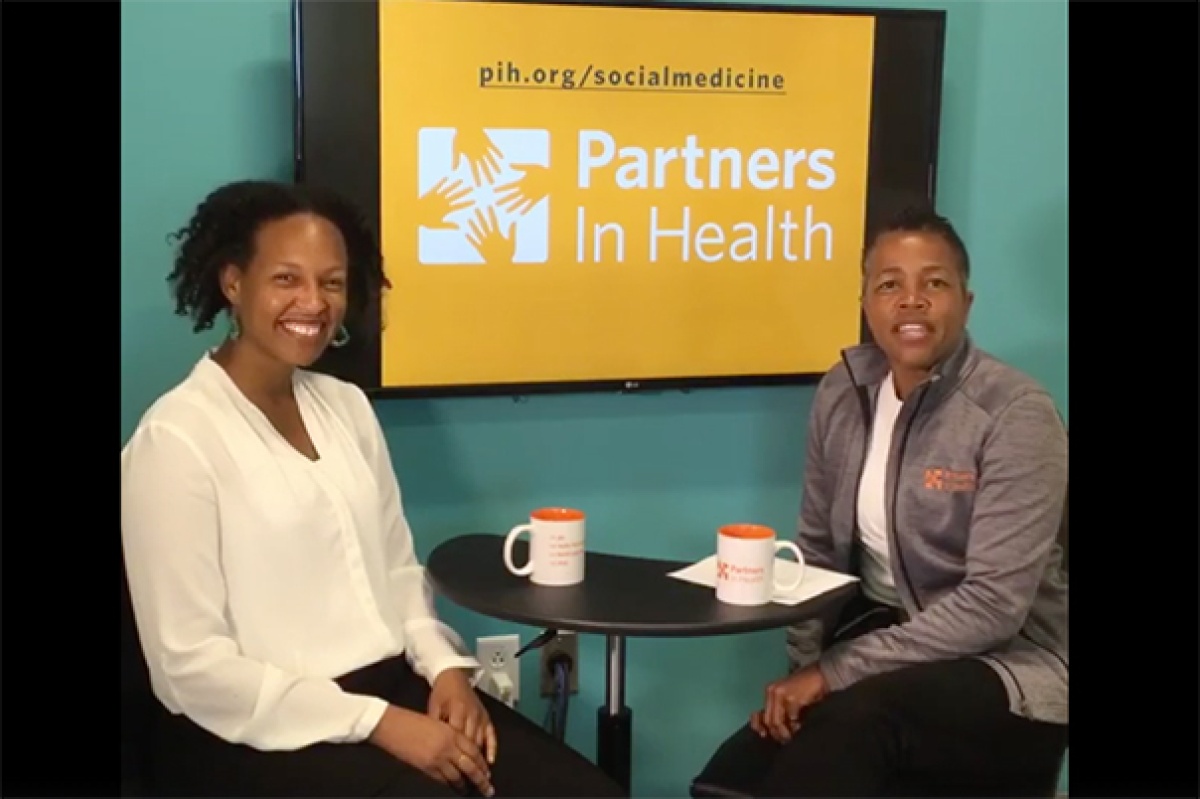Deputy Chief Medical Officer Discusses Social Medicine
Posted on Jun 27, 2016

On June 29, 2016, Dr. Michelle Morse, deputy chief medical officer at Partners In Health, discussed social medicine and how she and others are working to make it part of health education around the world.
If you missed it, watch the video here.
Social medicine is at the core of PIH’s mission. Our doctors, nurses, pharmacists, and community health workers focus on the social factors that make their patients sick. Simple examples illustrate why. Someone with HIV will not get better if they can’t afford to travel to a clinic for medication. Telling a diabetic to eat healthy foods is of no use if that person does not live near stores that stock fruit and vegetables.
Morse goes beyond medical examinations and prescriptions. She works to solve a broad array of problems that make her patients sick, and cares just as much about their incomes, education, and access to food and shelter as she does about their symptoms and medical history. She argues these issues are just as important for health practitioners to study as biology, chemistry, and physics—the so-called “hard” sciences that make up the majority of nursing and medical studies.
Morse’s bio
Morse’s role at PIH spans positions at Harvard Medical School, where she is an instructor in medicine, and Brigham and Women’s Hospital, where she practices as a hospitalist and serves as assistant program director for its internal medicine residency. She spends the rest of her time with PIH in Haiti, Rwanda, and Liberia, working to strengthen medical education systems and supporting clinical programs. She also co-directs EqualHealth, a nonprofit dedicated to ensuring high-quality medical and nursing education in Haiti.
Morse is a leader of the Social Medicine Consortium, which, in partnership with the nonprofit SocMed, held a conference for 700 social medicine enthusiasts in Minneapolis in April 2016.
“The end goal of the social medicine movement is to achieve health equity. We can't achieve that without very clear and explicit education tools and experiences so that health professionals feel equipped to address the health needs of very poor and very vulnerable populations all around the world,” she says.
 |
|
Morse demonstrates how to use a portable ultrasound at a PIH-supported hospital in Haiti. |
Want to learn more about social medicine? Check out these resources:
Videos: PIH Co-founder Paul Farmer and PIH Chief Medical Officer Joia Mukherjee address more than 700 people at the Social Medicine Consortium in April.
Article: Westerhaus M, Finnegan A, Haidar M, Kleinman A, Mukherjee J, Farmer P. The Necessity of Social Medicine in Medical Education. Academic Medicine. 2015; 565:568.
Article: Frenk J, Chen L, Bhutta Z, Cohen J, Crisp N, Evans T, Fineberg H, Garcia P, Ke Y, Kelley P, Kistnasamy B, Meleis A, Naylor D, Pablos-Mendez A, Reddy S, Scrimshaw S, Sepulveda J, Serwadda D, Zurayk H. Health Professionals for a New Century: Transforming Education to Strengthen Health Systems in an Interdependent World. Lancet. 2010; 376; 1923-1958.

